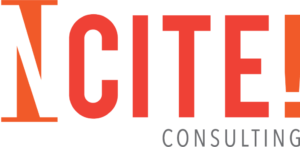Hey there! Let’s talk about something that can feel like a moving target for nonprofits—navigating political and economic changes. From shifts in government policies to fluctuating donor behavior due to economic downturns, these external factors can create uncertainty. But here’s the good news: with the right strategies, your nonprofit can adapt and even thrive.
At Incite Consulting, we help nonprofits build resilience through strategic planning, and we’re sharing a few tips on how to stay strong in challenging times.
1. Stay Informed and Proactive
In an ever-changing political and economic landscape, knowledge is power. Keeping up-to-date with policy changes, economic trends, and shifts in philanthropic behavior can help you anticipate challenges before they hit. Subscribe to relevant newsletters, join industry groups, and attend conferences that can provide you with insights into upcoming shifts. The more you know, the more prepared you’ll be to pivot your approach when necessary.
Regularly brief your board and team on how external changes could affect your nonprofit’s operations, fundraising, or service delivery. It helps everyone stay aligned and proactive.
2. Diversify Your Funding Streams
When the economy dips, donor dollars can dry up. Relying on a single source of funding makes your nonprofit vulnerable to external shocks. Instead, aim to diversify your funding streams by tapping into different channels—grants, corporate partnerships, major donors, crowdfunding, and recurring gifts.
Develop a fundraising strategy that incorporates multiple revenue sources. This ensures that if one stream is affected by external forces, your nonprofit will still have others to rely on.
3. Strengthen Relationships with Stakeholders
During times of uncertainty, strong relationships can make all the difference. Maintain close communication with your donors, board members, volunteers, and community partners. Let them know how external factors are impacting your nonprofit and share how they can help you weather the storm. Transparency builds trust, and people are more likely to stick by you when they understand the challenges you’re facing.
Create a regular cadence of updates for your stakeholders, such as newsletters, personal calls, or small virtual meetings. Keeping them engaged will boost loyalty and support.
4. Adapt Your Programs to Meet Current Needs
Political and economic shifts can change what your community needs most. Your programs may need to evolve to remain relevant. Whether it’s providing more emergency services during economic hardship or advocating for policy changes that directly affect your mission, staying flexible is key.
Evaluate your programs annually (or more frequently during challenging times) to ensure they’re aligned with the current needs of your community. Don’t hesitate to make adjustments to keep your services impactful.
Wrapping It Up
Navigating political and economic challenges is part of the reality for nonprofits, but with the right strategies, you can not only survive—you can thrive. By staying informed, diversifying funding, strengthening stakeholder relationships, and adapting your programs, your nonprofit can continue to make a meaningful impact, no matter the external pressures.
At Incite Consulting, I specialize in helping nonprofits develop the resilience they need to handle change with confidence. Let’s work together to build a strategy that keeps your organization strong, even in uncertain times.
Talk soon,
Kari Anderson
Principal, Incite Consulting

